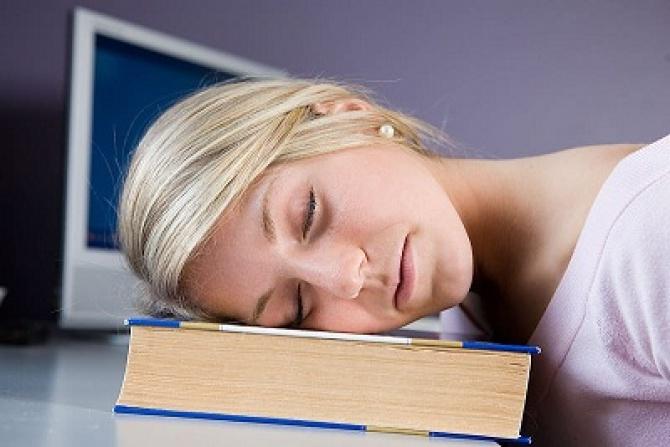
|
![]() DoctorHelps
|
Sleep Medicine
DoctorHelps
|
Sleep Medicine
The Centers for Disease Control and Prevention, (CDC) in a recent study revealed that 40 million Americans get less than 6 hours of sleep per night. According to CBS News this is the equivalent of 30 % of America's work force. It is often challenging to develop a healthy routine that enables us to get an adequate amount of sleep due to the constant never - ending demands of the day. However, due to the fact that sleep is so crucial to the recovery, repair, and replenishment of the body's ability to function in a healthful manner, making the effort to develop healthy sleep patterns is an urgent priority that should never be taken for granted.
For instance, according to Dr. Murali Doraiswamy, sleep deprivation can have a harmful effect on brain health. Dr. Murali states that people who had a pattern of sleep deprivation experienced a deficiency in an important brain chemical responsible for creating memories called Acetycholine. In other words, lack of sleep can cause memory loss. In fact, researchers have found that people who lacked sleep performed poorly in memory tests than people who had adequate sleep. Even though there are no research studies making a direct link between a pattern of chronic sleep deprivation and Alzheimer's, people with such poor sleeping patterns mimicked a similar deficiency in this same brain chemical that Alzheimer's patients possessed. This does not mean that people with chronic sleep deprivation will get Alzheimer's,
but they do experience symptoms related to memory loss.
When you have a good night's sleep you wake up refreshed, rejuvenated, replenished and prepared to face the day. A lack of seep negatively affects the body's ability to function physically, mentally, and emotionally. With lack of sleep your physical performance to perform tasks diminishes as your energy levels plummet, mentally your ability to think clearly and make sound judgments are reduced as your work performance decreases, and emotionally you become moody and irritable. But did you know that a lack of sleep also has a negative effect on your eyes? Therefore, here are some negative effects of lack of sleep on the eyes:
Dry Eye: When the eyes natural ability to recover and replenish itself is reduced, due to lack of sleep, this hinders the normal function of the visual system to produce a sufficient amount of moister and tears to remain healthy. According to the Mayo Clinic, moisture protects the eyes from infection and also keeps them smooth and clear. A deficiency in this moisture leads to symptoms associated with dry eye which include eye fatigue, sensitivity to light, eye redness, a stinging or burning sensation in your eyes, excessive tearing and blurry vision.
Popping Of Blood Vessels In the Eyes: Excessive sleep deprivation over an extended period of time according to eye care experts can create such a strain on the eyes that this stress may be manifested in the popping of the blood vessels in the eyes.
AION: (Ischemic Optic Neuropathy- This is a condition that may lead to vision loss and according to the American Academy of Ophthalmology, affects people in their middle ages already suffering from sleep Apnea.
The ideal daily recommended amount of sleep by doctors and health care experts is 8 hours. However, this may not be a realistic number to achieve due to the fact that in today's competitive world where a demanding lifestyle of never-ending to do lists is the norm, it is more practical to strive for sticking to no less than 6 hours daily. However, health care experts warn that a pattern of less than 5 hours of sleep can begin to have a negative effect on the eyes and the rest of the body.
While a demanding schedule makes getting an adequate amount of sleep a challenging undertaking, the health effects of lack of sleep leads to dire consequences and prevents the eyes and the rest of the body from functioning at its full potential. Well, you may ask what are the solutions to this problem? Well if fitting an adequate routine of sleep into your schedule is difficult, try setting a regular schedule for sleep and committing to it. Some people experience difficulty drifting off to sleep and this makes it challenging to get an adequate amount of rest. If this scenario applies to you try these suggestions:
Mind/Body Relaxation Technique: This is a relaxation technique that involves using the mind/ body connection to induce sleep. This is done by using the mind to relax the muscles in your feet as you slowly work your way up to your calves, thighs, pelvis, abdomen, chest, neck, head and facial muscles, thereby relaxing each muscle group in each area of the body one at a time. This relaxation technique induces sleep and is quite effective. Some other suggestions include taking a warm bath before going to bed and listening to relaxing music.
Make getting adequate sleep an integral part of your daily routine by fitting it into your daily schedule. Ultimately, these efforts are crucial in protecting your brain health and eye health as well. In the final analysis,healthy sleep patterns enable the entire body to perform at its full potential, maximizing your productivity and your ability to get the most out of your day.
Leave a Comment